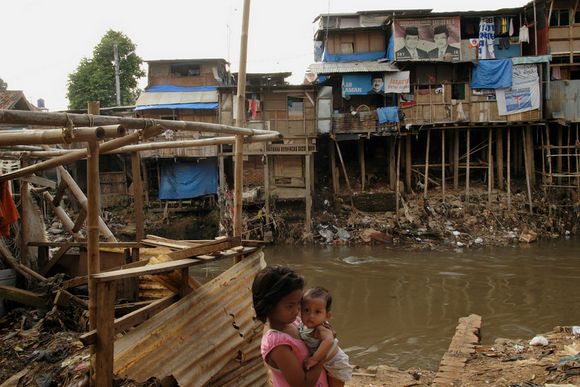Henri Ismail
Among Indonesians, Jakarta is famous for its shiny, high rise buildings and luxury malls. But it is also famous for its slums. Bukit Duri, through which the Ciliwung River runs, is one of them.
The Ciliwung River is the longest and the most polluted river in Jakarta. Migrants to the city live cheek by jowl along its banks. They live in very poor and unhygienic conditions.
Many of these migrants pay Rp.1,500 (US$0.13) per night to rent modified basements along the riverbank. One room is typically shared by many people, all using the same space to sleep, pray and eat.
Most of the migrants who live on the Ciliwung’s banks have come to look for work in Jakarta. Some are jobless but many of them scrape together a living selling items on the street. Some sell small household goods, others sell fresh produce. From this they can earn between Rp.30,000 (US$2.60) and Rp.100,000 (US$8.70) per day.
Others make a living collecting garbage from the river, which they can sell. Garbage recyclers generally earn between Rp.10,000 (US$0.87) and Rp.20,000 ($US1.74) per day, depending on what they can gather from the river. It is a good day for garbage recycler if the river turns up iron or aluminium.
Some of the people who live here come from West Java, two to four hours away by road. Others come from Central or East Java, eight to twelve hours by train. Mostly, they only stay a few weeks on the Ciliwung before returning home. But they almost always plan to return, and spend their lives moving back and forth between their home villages and Jakarta.
The images in this photo essay take us into the lives of some of Bukit Duri’s inhabitants.
|
A young girl nursing a baby walks by as images of the president of Indonesia and the governor of Jakarta
look out over the Ciliwung River
|
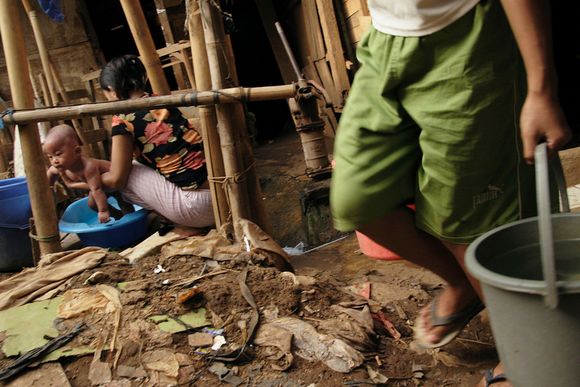 |
Access to clean water is very difficult. Many people use hand-pumps to get groundwater which may be
less contaminated than the river
|
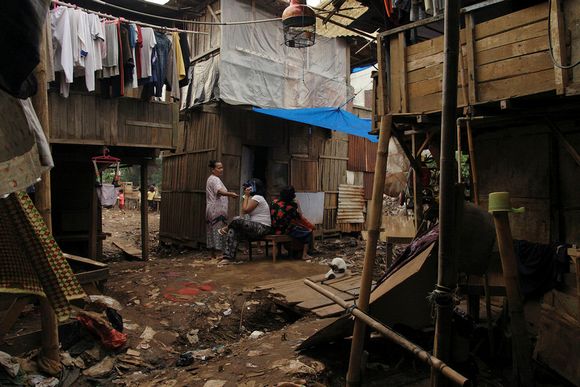 |
Local women taking a break from household duties
|
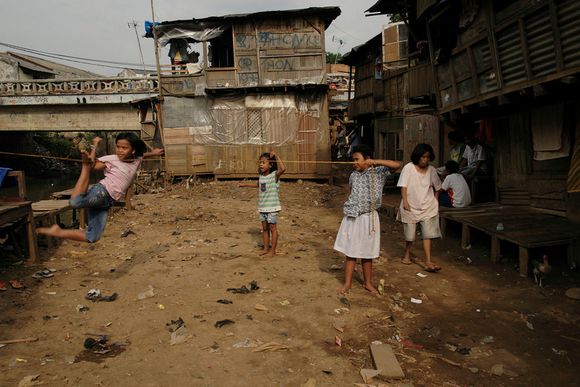 |
Outside school hours, young girls enjoy hanging out playing a jumping rope game
|
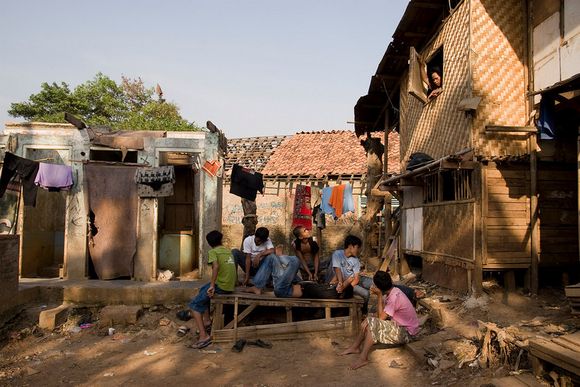 |
Teenagers hanging out together. The average level of education in this area is senior high school or lower
|
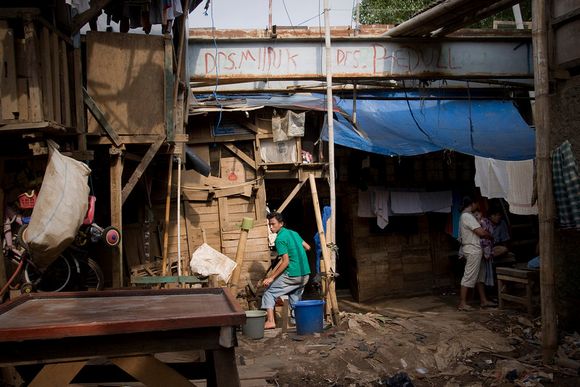 |
Pumping water outside their semi permanent house under a bridge
|
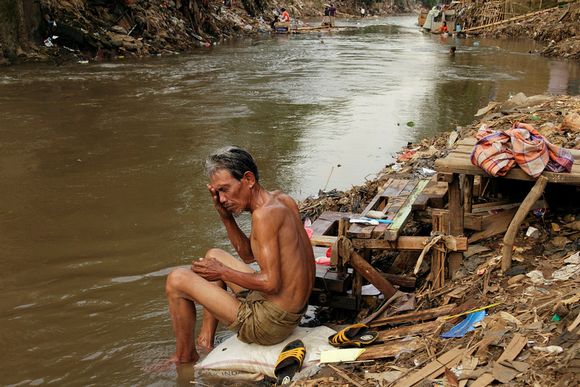 |
Access to clean water is difficult. Many use water from the river for bathing, cleaning teeth, and for other needs
|
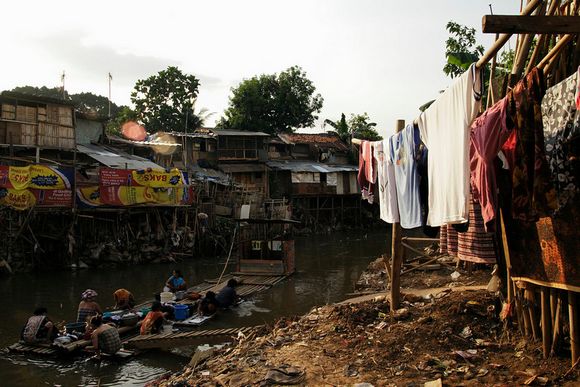 |
Away from the grubby banks, they use long bamboo rafts as platforms for washing clothes
|
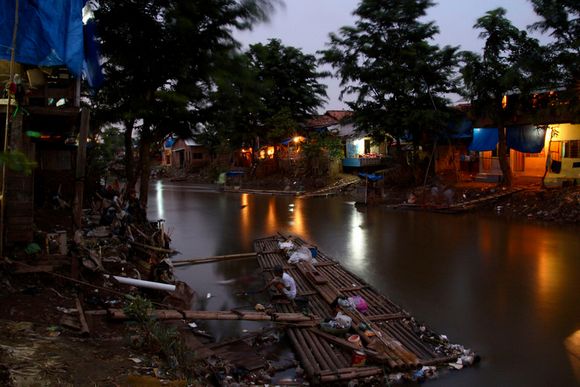 |
A man collects garbage from the river to recycle it for a few rupiah
|
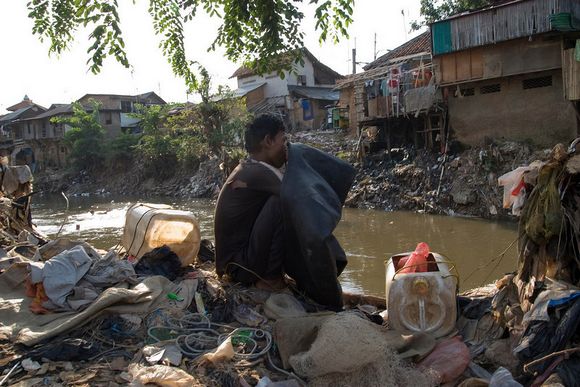 |
A garbage collector inflates his truck tyre inner-tube. He uses this inflatable raft to drift in the river while he
fishes out items from the water
|
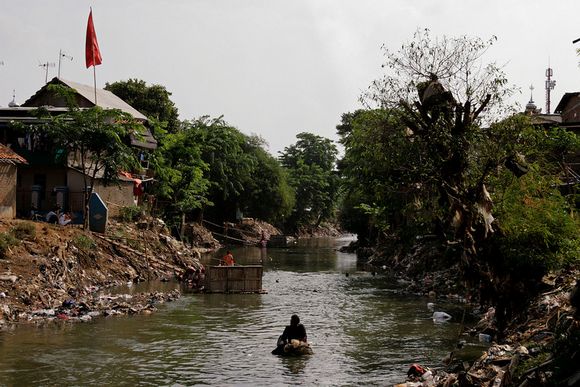 |
Drifting in the river, he collects garbage to recycle. For many, this is the only way to earn enough to survive
|
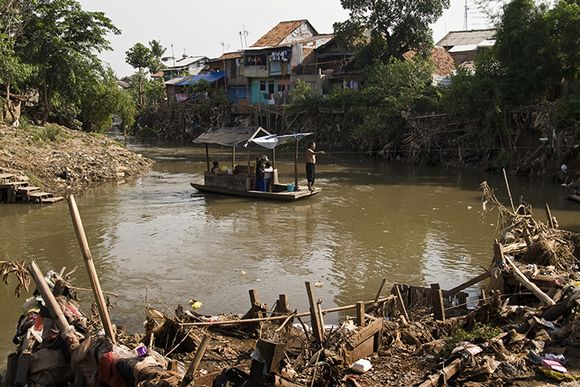 |
At various points along the Ciliwung, getek (rope-hauled punts) ferry the locals back and forth across the river.
Elsewhere, ropes over the river also allow the multi-purpose long bamboo rafts to ferry people across
|
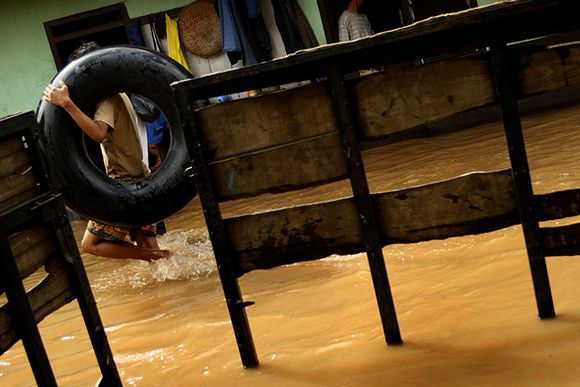 |
With seasonal floods, both the Ciliwung River and groundwater from hand-pumps become freshly contaminated
|
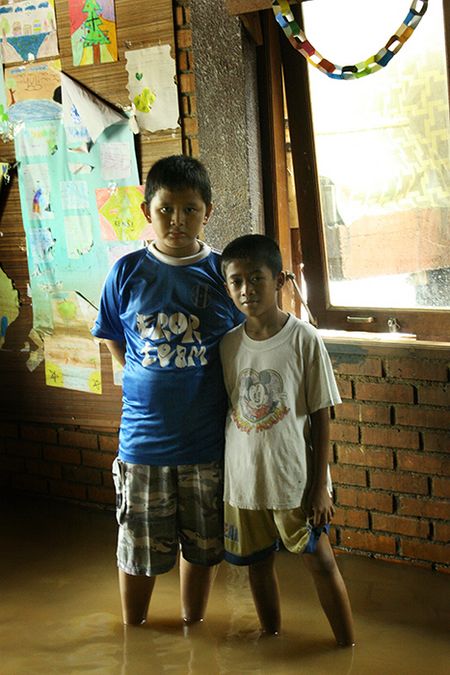 |
Two boys in a flooded Bukit Duri classroom during the rainy season. The young are more
vulnerable to waterborne diseases
|
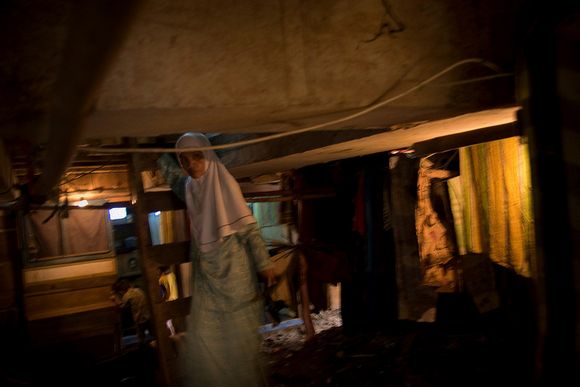 |
Cramped in her temporary home under a bridge
|
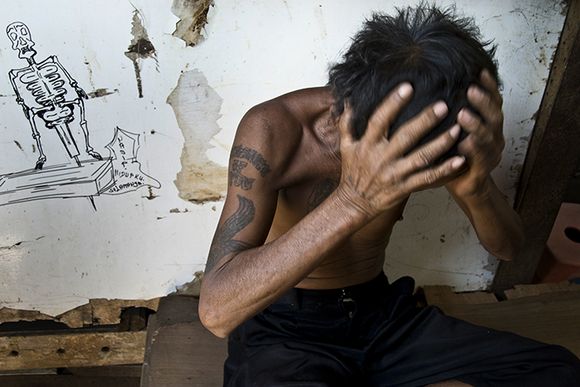 |
Down on his luck: a homeless man in a rough shelter
|
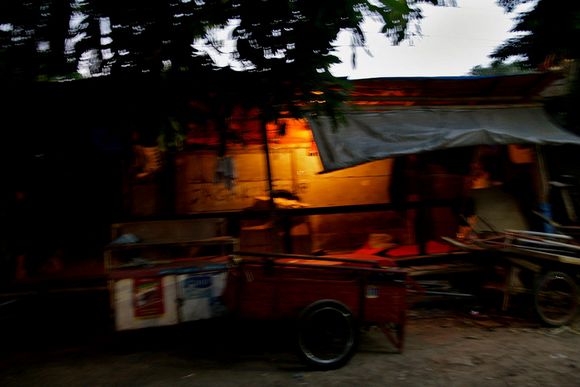 |
Some people build semi-permanent tents along the wall to sleep in. They have to pay illegal rent for this space
to a local bureaucrat
|
The banks of the Ciliwung, where I started taking photographs in 2007, are places of extreme poverty. But the people there have a warmth and friendliness. Their communities seem so very alive to me, and this is what keeps drawing me back to photograph them. ii
Henry Ismail (henri.ismail@gmail.com) was born in Jakarta. He studied political science at graduate level. He learned photography through night classes at Cultureel Centrum TU Delft, The Netherlands and by attending several workshops in The Netherlands, Spain and Indonesia.
See also H Angga Indraswara's Water woes
All photos in this essay are by Henri Ismail
Inside Indonesia 95: Jan-Mar 2009
















